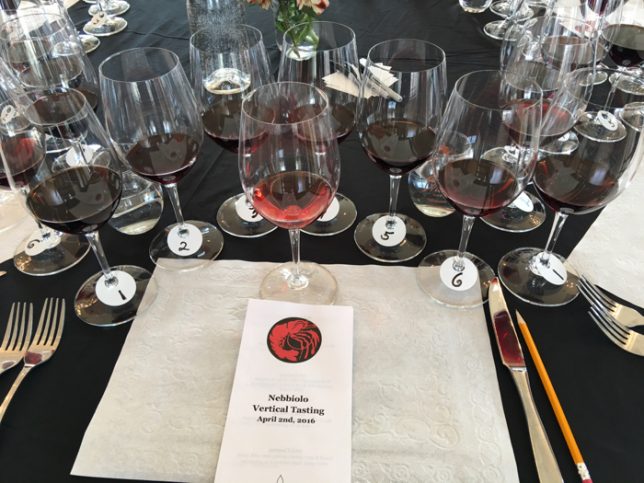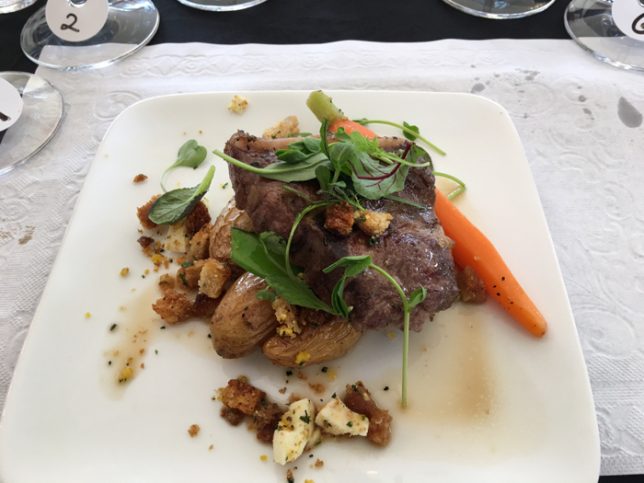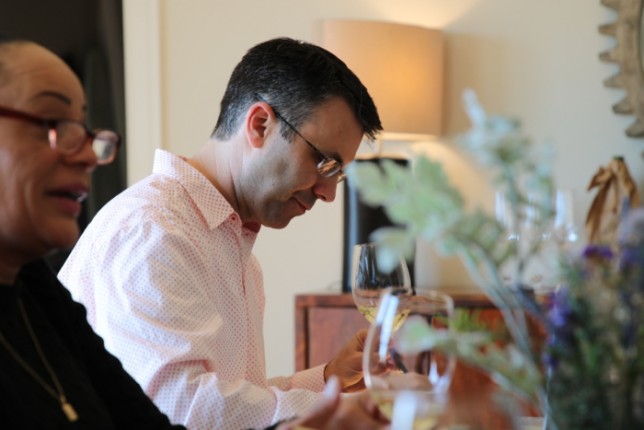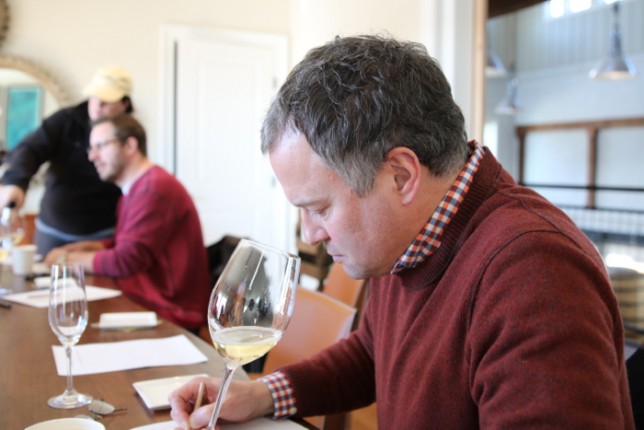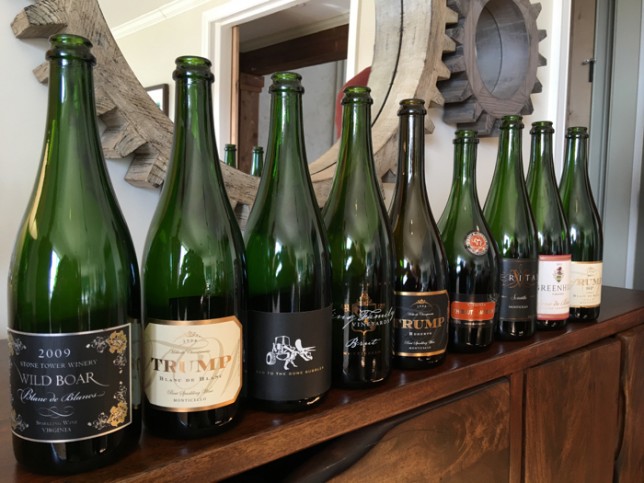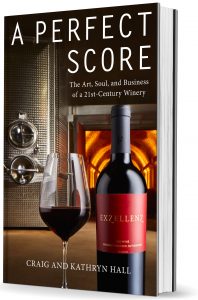 Are you a wine novice and interested in knowing more about wine and wine making process? Maybe you are an aspiring winemaker who wants to up your game to produce better wine. Or maybe you are the wine geek who always wants to know more about terroir or the finer details of making quality wine. A Perfect Score is the read for you. It presents the story of Craig and Kathryn Hall, owners of HALL and WALT wineries in California. Their journey into the world of wine and winemaking eventually earned them perfect 100 scores from wine critic Rob Parker.
Are you a wine novice and interested in knowing more about wine and wine making process? Maybe you are an aspiring winemaker who wants to up your game to produce better wine. Or maybe you are the wine geek who always wants to know more about terroir or the finer details of making quality wine. A Perfect Score is the read for you. It presents the story of Craig and Kathryn Hall, owners of HALL and WALT wineries in California. Their journey into the world of wine and winemaking eventually earned them perfect 100 scores from wine critic Rob Parker.
How did they earn the perfect score? I pulled out four important ingredients that came together to produce perfection for the Halls:
1)Vision: Kathryn Hall grew up in California wine country, and her parents Bob and Dolores Walt owned a vineyard in Sonoma. She became a lawyer and in the 1990s was appointed by President Clinton to be the U.S. Ambassador to Austria; however, despite her career successes, Kathryn yearned to be back in the vineyard. Her husband, Craig, had been a successful business man and entrepreneur. Together, they agreed to combine their unique talents and areas of expertise to pursue the art of winemaking. Perfect Score takes the reader through the history of Napa as a winemaking region starting in the early 20th century and then into the groundbreaking years of the 1970s when California wines proved to be on par or better than wines from France. Of course, Napa wine trails are cluttered with well-established wineries; adding to the list in the early 2000s was probably taking a risk. However, the Halls established a goal to produce wines of high quality that expressed terroir, and this lead them to purchase the Sacrashe Vineyard in Napa Valley. They were determined that their wines would be unique and distinctive and unlike others found along the Napa trails.
2) Precision: As time would tell, the Sacrashe Vineyard proved to be the correct site for the Halls to realize their vision. They also grew varietals that were suited to their particular site in Napa, and these included Cabernet Sauvignon, Merlot, and Sauvignon Blanc. Their Sonoma site produces wines under the WALT label, and grapes grown here include Pinot Noir and Chardonnay. A team of expert winemakers that include Steve Leveque and vineyard manager Don Munk allowed the vineyards to express themselves in the bottle while utilizing organic methods that avoided interventions with chemicals.
3) Perseverance: Vineyard managers and winemakers are basically farmers; their crop depends a lot on mother nature. The consumer adds another layer of stress——will they embrace the vision by purchasing the product? Will their pocket books allow them to do so? The Halls had established themselves as players in the winemaking field by racking up 90+ scores by wine critics, but the Great Recession of 2008 demanded that wine drinkers who appreciated fine wine make sacrifices. Those sacrifices included wine. However, despite tolls that the economic downturn played on the wine business, the Halls remained true to their vision and their commitment to quality vineyard and winemaking practices. In the end, their perseverance to paid off as demand returned while the wines continued to score 90+ points.
4) Access: The Halls learned early on that potential customers could be found beyond those who scoured traditional wine industry media. They realized the potential in social media earlier on to create a welcoming presence for a growing legion of HALL and WALT fans.
So what were the results of the Halls’ vision, precision, perseverance, and business acumen? A Perfect Score. In 2010, the HALL Exzellenz Cabernet Sauvignon earned 100 points from renowned wine critic Robert Parker. Parker then awarded 100 points to the 2013 HALL Rainin Vineyard Cabernet Sauvignon. Parker’s tasting notes noted qualities in both wines that were unique to the sites where the grapes were grown; of course, 100 points must also be a testimony to expert winemaking and vineyard management.
A Perfect Score should prove to be an insightful and inspiring read for anyone especially those readers who have any sort of interest in wine, wine making, and the wine industry. It presents an intriguing story mixed with personal stories from both Craig and Kathryn. Give it a read so that you too can aspire to your own perfect score!
 2015 Sauvignon Blanc: This was produced from a very hot growing season, and initial notes trended toward tropical with a whiff of cut grass. A few swirls of the glass presented grapefruit aromas. Grapefruit flavors and a zesty finish made for a refreshing display on the palate. We enjoyed this Sauvignon Blanc with honey goat cheese and baguette. This is a nice wine for warm weather; enjoy on its own or paired with gamey cheeses, fresh fruit, or shellfish.
2015 Sauvignon Blanc: This was produced from a very hot growing season, and initial notes trended toward tropical with a whiff of cut grass. A few swirls of the glass presented grapefruit aromas. Grapefruit flavors and a zesty finish made for a refreshing display on the palate. We enjoyed this Sauvignon Blanc with honey goat cheese and baguette. This is a nice wine for warm weather; enjoy on its own or paired with gamey cheeses, fresh fruit, or shellfish. 2015 Chardonnay: Of course, this too was the product of a hot growing season. Chardonnay grapes in this bottling come from the best locations in the Horse Heavens Hills. I am not an ABCer (Anything But Chardonnay); in fact, I love Chardonnay. Needless to say, I looked forward to sampling this one. Pineapple and lime notes were complemented by juicy pear and apple flavors with oak nuances on the finish. I also savored the fuller mouth feel, and it was the perfect partner with roasted chicken served aside mashed potatoes.
2015 Chardonnay: Of course, this too was the product of a hot growing season. Chardonnay grapes in this bottling come from the best locations in the Horse Heavens Hills. I am not an ABCer (Anything But Chardonnay); in fact, I love Chardonnay. Needless to say, I looked forward to sampling this one. Pineapple and lime notes were complemented by juicy pear and apple flavors with oak nuances on the finish. I also savored the fuller mouth feel, and it was the perfect partner with roasted chicken served aside mashed potatoes.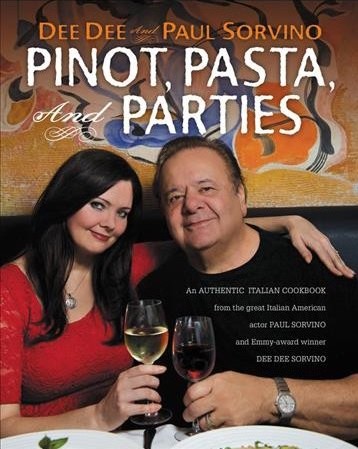 Renaissance man Paul Sorvino known for his role in Goodfellas but also a noted operatic tenor, sculptor and cook teams up with wife Dee Dee, herself an accomplished award winning television personality to produce Pinot, Pasta and Parties; this is a cookbook which presents Italian recipes with Paul’s personal flare. I am always on the lookout for well-organized cookbook that present easy-to-follow directions and suggested menus. This one certainly fits the bill, and I thought that I would share my thoughts for readers who want to consider this cookbook.
Renaissance man Paul Sorvino known for his role in Goodfellas but also a noted operatic tenor, sculptor and cook teams up with wife Dee Dee, herself an accomplished award winning television personality to produce Pinot, Pasta and Parties; this is a cookbook which presents Italian recipes with Paul’s personal flare. I am always on the lookout for well-organized cookbook that present easy-to-follow directions and suggested menus. This one certainly fits the bill, and I thought that I would share my thoughts for readers who want to consider this cookbook.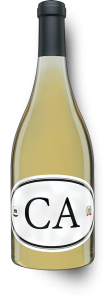 CA manages to meld both Old and New World styles. On both the nose and palate, it suggests the weight of a Napa inspired white wine; indeed, it is barrel aged in 30% new French oak in addition to fermentation in stainless steel tanks. Therefore, it presents a crisp entry with fruity flavors of pear, stone fruit and citrus. It finishes with a nutty element as well as a fuller mouth feel. Take time to note its lovely aromas of butterscotch, pear and lemon peel. In a way, it seemsto merge California and the Rhone region of France into a wine bottle. Who says white wines can’t be complex? CA is a blend of Chardonnay, Sauvignon Blanc, Viognier and Roussane; growers hale from Napa, Sonoma, and Mendocino. Food pairings? I enjoyed this one with roasted chicken with mashed potatoes. Herbed pork roast, dishes topped with cream sauce, goat cheeses on a toasted baguette—-you get the picture (or the menu ideas.)
CA manages to meld both Old and New World styles. On both the nose and palate, it suggests the weight of a Napa inspired white wine; indeed, it is barrel aged in 30% new French oak in addition to fermentation in stainless steel tanks. Therefore, it presents a crisp entry with fruity flavors of pear, stone fruit and citrus. It finishes with a nutty element as well as a fuller mouth feel. Take time to note its lovely aromas of butterscotch, pear and lemon peel. In a way, it seemsto merge California and the Rhone region of France into a wine bottle. Who says white wines can’t be complex? CA is a blend of Chardonnay, Sauvignon Blanc, Viognier and Roussane; growers hale from Napa, Sonoma, and Mendocino. Food pairings? I enjoyed this one with roasted chicken with mashed potatoes. Herbed pork roast, dishes topped with cream sauce, goat cheeses on a toasted baguette—-you get the picture (or the menu ideas.) Quite simply, we both adored this wine. On the nose, I noted aromas of spring blossoms, lime, orange zest, and shale; flavors of pear, lime and citrus zest led to a full and fruity palate followed by a crisp finish. Corse fully expresses a Mediterranean climate with its cool, breezy nights and warm, dry days. Did Napoleon Bonaparte, Corsica’s most famous native, enjoy this Vermentino with his favorite meal—-chicken and pasta with parmesan cheese? We hope so, and I thought of Napoleon when I prepared dinner. Crab cakes were on the menu, but I did toss some bowtie pasta with butter and parmesan cheese to serve as a side dish It proved to be a lovely pairing!
Quite simply, we both adored this wine. On the nose, I noted aromas of spring blossoms, lime, orange zest, and shale; flavors of pear, lime and citrus zest led to a full and fruity palate followed by a crisp finish. Corse fully expresses a Mediterranean climate with its cool, breezy nights and warm, dry days. Did Napoleon Bonaparte, Corsica’s most famous native, enjoy this Vermentino with his favorite meal—-chicken and pasta with parmesan cheese? We hope so, and I thought of Napoleon when I prepared dinner. Crab cakes were on the menu, but I did toss some bowtie pasta with butter and parmesan cheese to serve as a side dish It proved to be a lovely pairing! 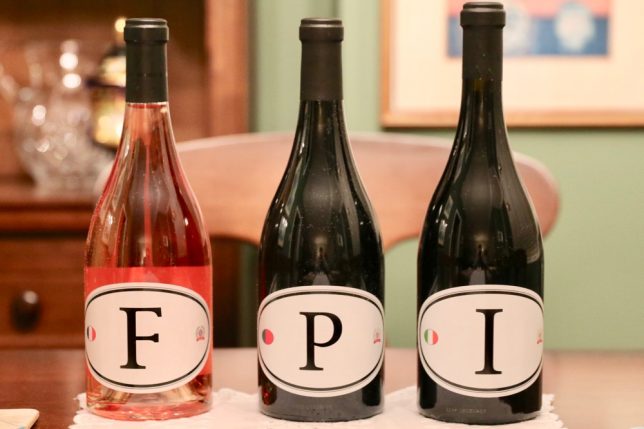
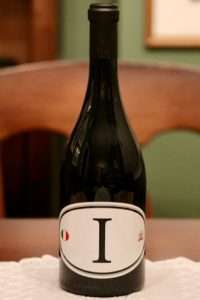 I is a blend of Negroamaro, Nero d’Avola, and Barbera, and these varietals represent fruit from Puglia located Southern region of Italy as well as Barbera located in the Piedmont region of Northern Italy. The result is a rich, complex wine with aromas of blackberry, charcuterie, fall spices and cedar. A fruity palate of dark berries gives way to spice and oak nuances. Enjoy with Italian fare or with beef dishes, a platter of sliced dried meats, and hard cheeses.
I is a blend of Negroamaro, Nero d’Avola, and Barbera, and these varietals represent fruit from Puglia located Southern region of Italy as well as Barbera located in the Piedmont region of Northern Italy. The result is a rich, complex wine with aromas of blackberry, charcuterie, fall spices and cedar. A fruity palate of dark berries gives way to spice and oak nuances. Enjoy with Italian fare or with beef dishes, a platter of sliced dried meats, and hard cheeses.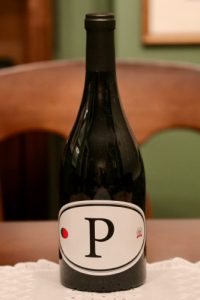 If roasted chops are on the menu, consider P, a blend of Portuguese grapes that includes Touriga Nacional, Trincadeira, and Touriga Franca. P also presents a fruity nose and palate with notes of plum, cherry and blackberry; hints of anise and black pepper also come out to play. We enjoyed P with roasted pork chops and roasted potatoes sprinkled with basil, thyme, and rosemary.
If roasted chops are on the menu, consider P, a blend of Portuguese grapes that includes Touriga Nacional, Trincadeira, and Touriga Franca. P also presents a fruity nose and palate with notes of plum, cherry and blackberry; hints of anise and black pepper also come out to play. We enjoyed P with roasted pork chops and roasted potatoes sprinkled with basil, thyme, and rosemary.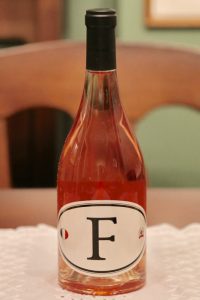 So what is F? Well, it follows the letter E; in addition, F is a rose produced from France. Hence, it earns the F designation on the label. F is produced from the Grenache grape grown in the vineyards of southern France. It presents a translucent pink tone in the glass that suggests summer but in reality is quite versatile all year round. We recently enjoyed it on a colder winter evening with pasta tossed with olive oil, thinly sliced ham, parmesan cheese, and Italian herbs. Floral notes were accompanied by aromas of strawberry and peach fuzz. Bright red berry and melon flavors played well with a flinty edge that made for a refreshing, dry rose. I love these kinds of roses in the summer, but I always make certain to have a stash of these on hand for Thanksgiving or any larger gathering where a variety of dishes may be served but different wine palates will have to be satisfied.
So what is F? Well, it follows the letter E; in addition, F is a rose produced from France. Hence, it earns the F designation on the label. F is produced from the Grenache grape grown in the vineyards of southern France. It presents a translucent pink tone in the glass that suggests summer but in reality is quite versatile all year round. We recently enjoyed it on a colder winter evening with pasta tossed with olive oil, thinly sliced ham, parmesan cheese, and Italian herbs. Floral notes were accompanied by aromas of strawberry and peach fuzz. Bright red berry and melon flavors played well with a flinty edge that made for a refreshing, dry rose. I love these kinds of roses in the summer, but I always make certain to have a stash of these on hand for Thanksgiving or any larger gathering where a variety of dishes may be served but different wine palates will have to be satisfied.  Are you a wine novice and interested in knowing more about wine and wine making process? Maybe you are an aspiring winemaker who wants to up your game to produce better wine. Or maybe you are the wine geek who always wants to know more about terroir or the finer details of making quality wine. A Perfect Score is the read for you. It presents the story of Craig and Kathryn Hall, owners of HALL and WALT wineries in California. Their journey into the world of wine and winemaking eventually earned them perfect 100 scores from wine critic Rob Parker.
Are you a wine novice and interested in knowing more about wine and wine making process? Maybe you are an aspiring winemaker who wants to up your game to produce better wine. Or maybe you are the wine geek who always wants to know more about terroir or the finer details of making quality wine. A Perfect Score is the read for you. It presents the story of Craig and Kathryn Hall, owners of HALL and WALT wineries in California. Their journey into the world of wine and winemaking eventually earned them perfect 100 scores from wine critic Rob Parker. 
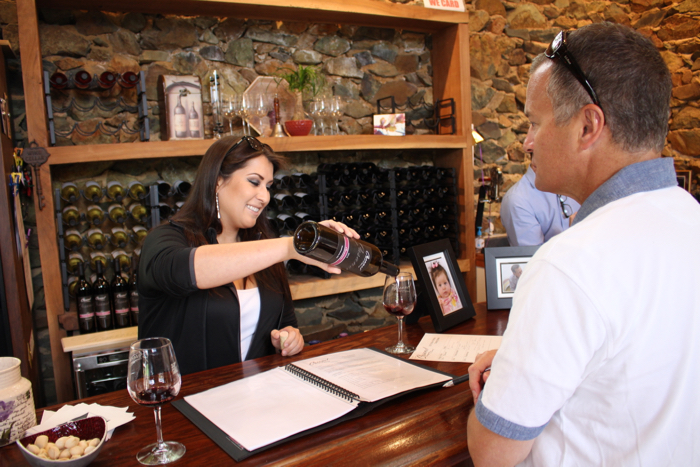

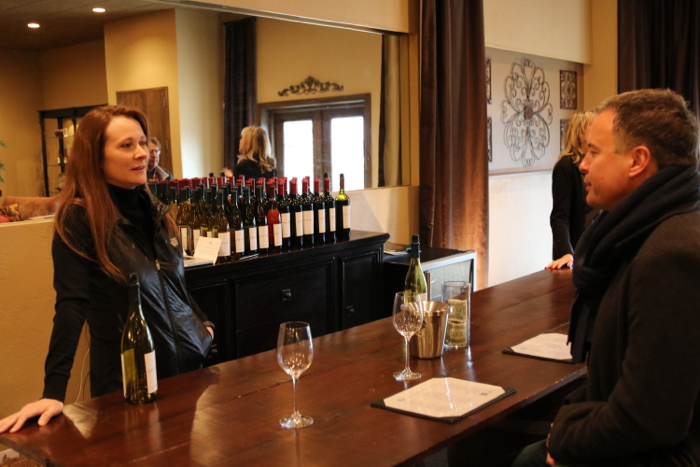


 On March 5, we accepted an invitation to attend the Enhanced Tasting experience at Veramar Vineyard. The enhanced tasting is a re-vamped version of the reserve tasting held at the winery in the past. This tasting includes foods paired alongside limited production (reserve) wines and wines featured on the regular tasting menu. At this particular tasting, a 2014 Fume Blanc was partnered with french olives, a chambourcin-based rose was paired with prosciutto, the 2013 Merlot stood alongside duck rilles, and a non-vintage Bordeaux blend called Rooster Red made fast friends with manchego cheese and fig spread. In the end, I found that all of the foods paired well with each of the wines; however, the wines that impressed me the most were the 2014 Fume Blanc and the 2013 Merlot. The Fume Blanc, made from Sauvignon Blanc grapes grown in Loudoun County, presented elements of citrus and fresh grass along with a mineral note. It was aged in neutral oak for 17 months so it possessed a richer mouth feel than the leaner Sauvignon Blancs that most drinkers may associate with the grape. The 2013 Merlot presented a smoky nose with notes of tobacco, bramble berry and cherry. The Merlot grapes were estate grown and aged for 18 months in French oak barrels, with some time in neutral oak barrels. In the end, I thought that all of the food items paired just fine with all of the wines; so, I felt free to play around and enjoyed the olives with the rose but noshed on the salty prosciutto with the Rooster Red.
On March 5, we accepted an invitation to attend the Enhanced Tasting experience at Veramar Vineyard. The enhanced tasting is a re-vamped version of the reserve tasting held at the winery in the past. This tasting includes foods paired alongside limited production (reserve) wines and wines featured on the regular tasting menu. At this particular tasting, a 2014 Fume Blanc was partnered with french olives, a chambourcin-based rose was paired with prosciutto, the 2013 Merlot stood alongside duck rilles, and a non-vintage Bordeaux blend called Rooster Red made fast friends with manchego cheese and fig spread. In the end, I found that all of the foods paired well with each of the wines; however, the wines that impressed me the most were the 2014 Fume Blanc and the 2013 Merlot. The Fume Blanc, made from Sauvignon Blanc grapes grown in Loudoun County, presented elements of citrus and fresh grass along with a mineral note. It was aged in neutral oak for 17 months so it possessed a richer mouth feel than the leaner Sauvignon Blancs that most drinkers may associate with the grape. The 2013 Merlot presented a smoky nose with notes of tobacco, bramble berry and cherry. The Merlot grapes were estate grown and aged for 18 months in French oak barrels, with some time in neutral oak barrels. In the end, I thought that all of the food items paired just fine with all of the wines; so, I felt free to play around and enjoyed the olives with the rose but noshed on the salty prosciutto with the Rooster Red.